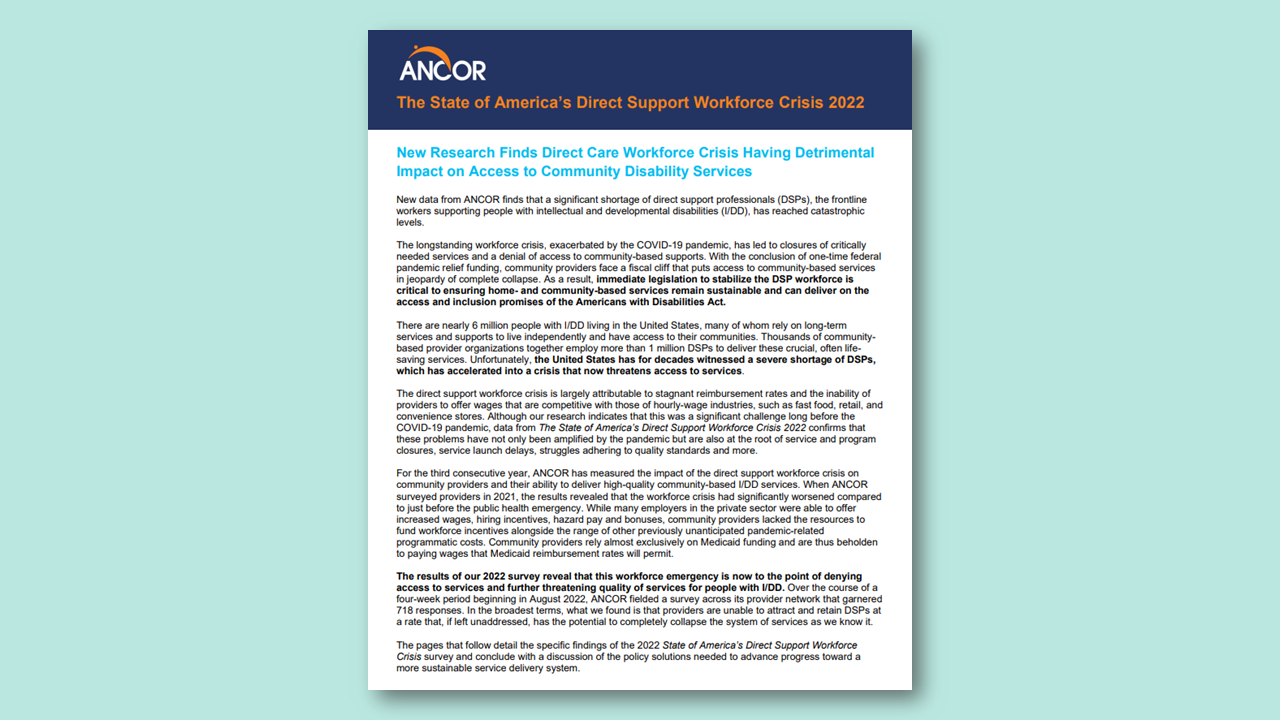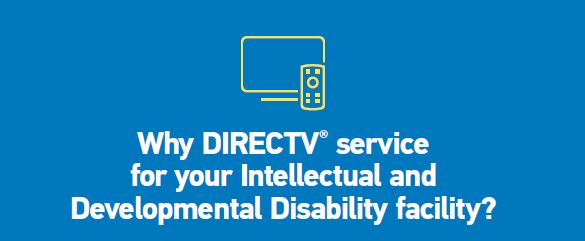Research & Reports
The State of America’s Direct Support Workforce Crisis 2022

Share this page
Stay Informed on the Latest Research & Analysis from ANCOR
More Resources
Comment Letters
ANCOR Letter Opposing Medicaid Cuts

Fact Sheets


